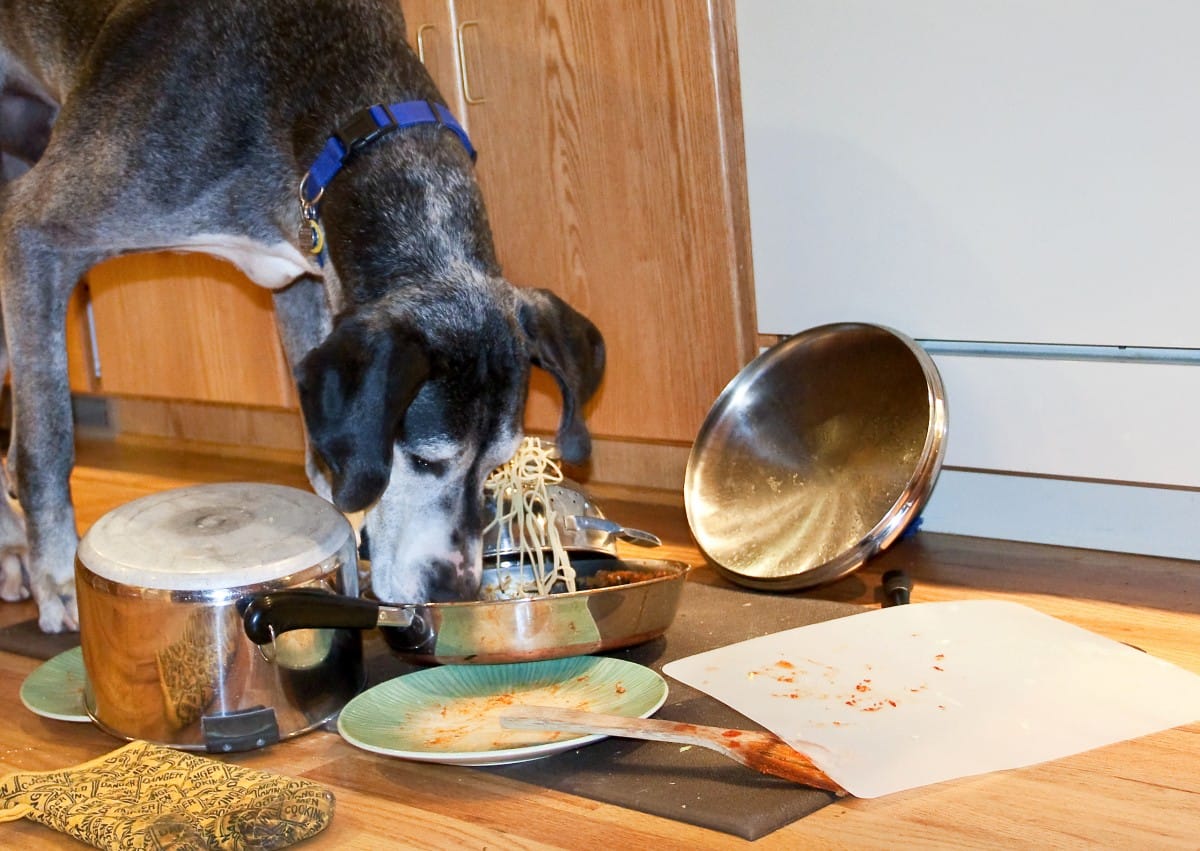Many dog owners have experienced the frustration and concern of dealing with a sensitive stomach in their furry friend. Symptoms such as vomiting, diarrhea, and gas can be uncomfortable for the dog and stressful for the owner. One of the most important factors in managing a sensitive stomach is feeding the dog a high-quality, easily digestible diet.
When it comes to choosing the right dog food for a sensitive stomach, there are a few key things to look for. First and foremost, the food should be made from high-quality ingredients that are easy for the dog to digest. This may mean avoiding certain common allergens such as wheat, soy, and corn. Additionally, the food should be free from artificial colors, flavors, and preservatives, as these can also irritate a sensitive stomach.
Fortunately, there are many good dog food options available that are specifically designed for dogs with sensitive stomachs. These foods often contain ingredients such as easily digestible proteins, limited ingredients, and probiotics to support digestive health. By choosing the right food and monitoring your dog's symptoms, you can help keep your furry friend happy and healthy.

Understanding Canine Sensitive Stomachs
Dogs are known for their love of food, but some dogs may experience digestive issues that can make mealtime a challenge. Canine sensitive stomachs are a common issue that many pet owners face. Understanding the signs of sensitivity and the common causes can help pet owners choose the right food for their furry friend.
Signs of Sensitivity
Dogs with sensitive stomachs may experience a variety of symptoms after eating. These symptoms can include:
- Vomiting
- Diarrhea
- Flatulence
- Loss of appetite
- Abdominal pain
- Lethargy
If a dog experiences any of these symptoms, it is important to take them to a veterinarian to rule out any underlying health issues.
Common Causes
There are several common causes of sensitive stomachs in dogs. These include:
- Food allergies or intolerances: Dogs can develop allergies or intolerances to certain proteins, grains, or other ingredients in their food.
- Sudden changes in diet: Dogs may experience digestive upset if their diet is suddenly changed without a proper transition period.
- Eating too quickly: Dogs that eat too quickly may swallow air, which can lead to digestive upset.
- Ingesting foreign objects: Dogs that ingest non-food items, such as toys or clothing, may experience digestive issues.
By understanding the signs of sensitivity and the common causes, pet owners can make informed decisions about their dog's diet. Choosing a high-quality dog food formulated for sensitive stomachs can help alleviate symptoms and improve the overall health and well-being of their furry friend.

Key Ingredients for Sensitive Stomach Dog Food
When it comes to choosing the right dog food for a sensitive stomach, it is important to look for specific ingredients that can help alleviate digestive issues. Here are some key ingredients to look for in sensitive stomach dog food:
Probiotics and Prebiotics
Probiotics and prebiotics are beneficial bacteria and fibers that can help promote healthy digestion in dogs. Probiotics can help regulate the balance of good bacteria in the gut, while prebiotics can provide the food and nutrients that these bacteria need to thrive.
When looking for sensitive stomach dog food, it is important to choose a formula that contains a blend of probiotics and prebiotics. This can help support healthy digestion and reduce the risk of digestive upset.
Easily Digestible Proteins
Dogs with sensitive stomachs may have difficulty digesting certain types of proteins, such as beef or chicken. To avoid digestive upset, it is important to choose a dog food that contains easily digestible proteins, such as lamb, fish, or venison.
Easily digestible proteins can help reduce the risk of digestive upset and promote healthy digestion in dogs with sensitive stomachs.
Limited Ingredient Diets
Limited ingredient diets are designed to minimize the number of ingredients in a dog's food, which can help reduce the risk of digestive upset. These diets typically contain a single source of protein and a limited number of other ingredients, such as vegetables and grains.
When choosing a limited ingredient diet for a dog with a sensitive stomach, it is important to choose a formula that is free from common allergens, such as wheat, soy, and corn.
By choosing a dog food that contains probiotics and prebiotics, easily digestible proteins, or a limited number of ingredients, pet owners can help reduce the risk of digestive upset in dogs with sensitive stomachs.

Choosing the Right Dog Food
When it comes to choosing the right dog food for a sensitive stomach, there are a few things to consider. Here are some factors to keep in mind when selecting the best food for your furry friend.
Wet vs. Dry Food
Both wet and dry food options have their advantages and disadvantages. Wet food can be easier for dogs with sensitive stomachs to digest, as it is high in moisture and can help with hydration. However, it can also be more expensive and spoil faster. On the other hand, dry food is more affordable and has a longer shelf life, but it may not be as palatable for dogs with sensitive stomachs.
Grain-Free Options
Grain-free dog food has become increasingly popular in recent years, as many pet owners believe that grains can cause digestive issues in dogs. However, it's important to note that not all dogs need a grain-free diet, and some may actually benefit from the added fiber and nutrients found in grains. It's best to consult with a veterinarian to determine if a grain-free diet is necessary for your dog's sensitive stomach.
Hypoallergenic Formulas
Hypoallergenic dog food is specially formulated for dogs with food allergies or sensitivities. These formulas typically contain novel protein sources, such as duck or venison, and limited ingredients to minimize the risk of an allergic reaction. While hypoallergenic formulas can be more expensive, they may be necessary for dogs with severe food allergies or sensitivities.
By considering factors such as wet vs. dry food, grain-free options, and hypoallergenic formulas, pet owners can choose the best dog food for their furry friend's sensitive stomach.

Top Recommended Dog Foods for Sensitive Stomachs
When it comes to feeding dogs with sensitive stomachs, it can be challenging to find the right food that won't cause digestive issues. However, there are some top recommended dog foods that can help alleviate the problem.
Specialized Commercial Brands
One option for dogs with sensitive stomachs is specialized commercial brands. These brands are formulated with easily digestible ingredients that are gentle on the stomach. Here are some of the top recommended commercial brands for dogs with sensitive stomachs:
- Blue Buffalo Basics Limited Ingredient Diet: This brand offers limited-ingredient dog food that is free from grains, gluten, chicken, dairy, and eggs. It contains high-quality protein from real turkey and potato for easy digestion.
- Hill's Science Diet Sensitive Stomach and Skin: This brand is formulated with prebiotic fiber to support digestive health and promote a healthy immune system. It contains high-quality protein from chicken and rice for easy digestion.
- Purina Pro Plan Sensitive Skin and Stomach: This brand offers a blend of easily digestible rice and oatmeal with high-quality protein from real salmon for optimal nutrient absorption. It also contains prebiotic fiber to promote digestive health.
Prescription Diets
Another option for dogs with sensitive stomachs is prescription diets. These diets are formulated with highly digestible ingredients that are gentle on the stomach. Here are some of the top recommended prescription diets for dogs with sensitive stomachs:
- Royal Canin Gastrointestinal: This brand offers a range of prescription diets for dogs with sensitive stomachs. It contains highly digestible proteins and prebiotic fibers to support digestive health.
- Hill's Prescription Diet i/d: This brand is formulated with highly digestible proteins and fat to help improve digestion and nutrient absorption. It also contains prebiotic fiber to promote digestive health.
- Purina Pro Plan Veterinary Diets EN Gastroenteric: This brand offers a prescription diet that is highly digestible and contains a blend of prebiotic fibers to support digestive health. It also contains high-quality protein from real chicken for optimal nutrient absorption.
Overall, these top recommended dog foods for sensitive stomachs can help alleviate digestive issues and promote optimal health in dogs.

Home-Cooked Diets and Natural Remedies
Homemade Food Recipes
For dogs with sensitive stomachs, homemade food can be a great option. It allows pet owners to control the ingredients and ensure that their dog is getting a balanced diet. However, it is important to consult with a veterinarian or a veterinary nutritionist to ensure that the homemade food meets the dog's nutritional needs.
Some popular homemade food recipes for dogs with sensitive stomachs include boiled chicken and rice, lean ground beef and sweet potatoes, and cooked salmon and quinoa. These recipes are easy to make and contain easily digestible ingredients that are gentle on the stomach.
Supplements and Additives
In addition to homemade food, there are several supplements and additives that can help dogs with sensitive stomachs. These include probiotics, digestive enzymes, and fiber supplements.
Probiotics are beneficial bacteria that help maintain a healthy gut flora. They can be found in yogurt, kefir, and other fermented foods. Digestive enzymes, on the other hand, help break down food and improve nutrient absorption. They can be found in supplements or added to homemade food.
Fiber supplements, such as pumpkin or psyllium, can also be beneficial for dogs with sensitive stomachs. Fiber helps regulate digestion and can help alleviate constipation or diarrhea.
Overall, homemade food and natural remedies can be a great option for dogs with sensitive stomachs. However, it is important to consult with a veterinarian or a veterinary nutritionist to ensure that the homemade food and supplements meet the dog's nutritional needs.
Transitioning to a New Dog Food
When transitioning to a new dog food, it is important to do so gradually to prevent gastrointestinal upset. This is especially important for dogs with sensitive stomachs.
Gradual Introduction Method
To transition to a new dog food, follow the gradual introduction method:
- Start by mixing a small amount of the new dog food with the current dog food.
- Gradually increase the amount of the new dog food while decreasing the amount of the current dog food over the course of 7-10 days.
- Monitor your dog for any signs of digestive upset such as vomiting, diarrhea, or loss of appetite.
- If your dog experiences any digestive upset, slow down the transition process or consult with your veterinarian for guidance.
It is important to note that every dog is different and may require a longer or shorter transition period. Always monitor your dog's behavior and adjust the transition process accordingly. Additionally, it is recommended to stick with one brand and flavor of dog food to prevent digestive upset.

Monitoring Your Dog's Health
Regular Veterinary Check-Ups
One of the most important things you can do to monitor your dog's health is to schedule regular check-ups with your veterinarian. These check-ups are important because they allow your vet to monitor your dog's overall health and catch any potential health problems early on. During these check-ups, your vet will likely perform a physical exam, take your dog's temperature, and check for any signs of illness or disease.
In addition to regular check-ups, it's important to take your dog to the vet if you notice any changes in their behavior or health. This could include symptoms such as vomiting, diarrhea, lethargy, or loss of appetite. If you notice any of these symptoms, it's important to contact your vet right away to schedule an appointment.
Keeping a Food Diary
Another important way to monitor your dog's health is to keep a food diary. This can help you track what your dog is eating and how they are responding to different foods. By keeping a food diary, you can identify any foods that may be causing digestive issues or other health problems.
When keeping a food diary, be sure to include the type of food your dog is eating, the amount they are eating, and any symptoms or reactions they may be experiencing. This can help you identify patterns and make changes to your dog's diet as needed.
Overall, monitoring your dog's health is an important part of keeping them healthy and happy. By scheduling regular check-ups with your vet and keeping a food diary, you can help identify any potential health problems early on and make changes to your dog's diet as needed.
Avoiding Common Irritants
Food Allergens
When it comes to choosing the right dog food for sensitive stomachs, it's important to avoid common food allergens. These include ingredients such as beef, chicken, dairy, and wheat. Dogs with sensitive stomachs may have trouble digesting these ingredients, leading to digestive upset and discomfort.
Instead, look for dog foods that use alternative protein sources such as lamb, venison, or fish. These proteins are less commonly associated with food allergies and may be easier for your dog to digest.
Artificial Additives
Another common irritant in dog food is artificial additives. These include preservatives, colors, and flavors. While these additives may make the food more appealing to humans, they can be harmful to dogs with sensitive stomachs.
Look for dog foods that use natural preservatives such as vitamin E or vitamin C instead of chemical preservatives. Avoid dog foods that use artificial colors or flavors, as these can cause digestive upset and may even be toxic to your dog.
By avoiding common irritants such as food allergens and artificial additives, you can help ensure that your dog's sensitive stomach stays healthy and happy.

Frequently Asked Questions
- What ingredients should I look for in dog food for a sensitive stomach?
- When choosing dog food for a sensitive stomach, it's important to look for simple, high-quality ingredients. Foods that are free from artificial preservatives, flavors, and colors are also a good option. Some common ingredients that can be beneficial for dogs with sensitive stomachs include easily digestible proteins like chicken, lamb, and fish, as well as complex carbohydrates like sweet potatoes and brown rice.
- How can I tell if my dog's food is suitable for their sensitive digestion?
- One way to determine if a food is suitable for your dog's sensitive digestion is to look for foods that are labeled as ""limited ingredient"" or ""hypoallergenic."" These foods are typically made with a small number of simple ingredients that are less likely to cause digestive upset. Additionally, you can monitor your dog's stool to see if their food is causing any digestive issues like diarrhea or vomiting.
- What are the benefits of wet food versus dry food for dogs with sensitive stomachs?
- Wet food can be beneficial for dogs with sensitive stomachs because it typically contains more moisture, which can help to keep your dog hydrated and aid in digestion. Additionally, wet food is often easier to digest than dry food, which can be beneficial for dogs with sensitive stomachs. However, dry food can also be a good option as long as it is made with high-quality, easily digestible ingredients.
- Are there specific brands recommended for senior dogs with digestive issues?
- There are several brands that offer dog food specifically formulated for senior dogs with digestive issues. Some of these brands include Hill's Science Diet, Royal Canin, and Blue Buffalo. However, it's important to consult with your veterinarian before making any changes to your dog's diet.
- How can homemade diets be tailored to support a dog with a sensitive stomach?
- Homemade diets can be a good option for dogs with sensitive stomachs, as they allow you to control the ingredients that go into your dog's food. When creating a homemade diet for your dog, it's important to consult with your veterinarian to ensure that the diet is nutritionally balanced and meets your dog's specific dietary needs.
- What dietary changes can help manage a dog's diarrhea?
- If your dog is experiencing diarrhea, it's important to make dietary changes to help manage their symptoms. Some dietary changes that can be beneficial include feeding your dog small, frequent meals throughout the day, switching to a bland diet of boiled chicken and rice, and avoiding foods that are high in fat or fiber. Additionally, it's important to ensure that your dog has access to plenty of clean water to help prevent dehydration.




